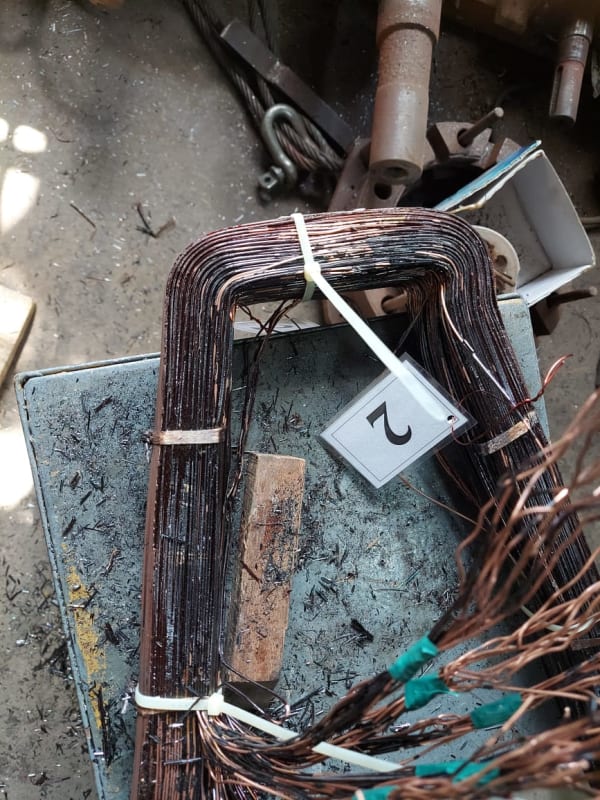edison123
Electrical
- Oct 23, 2002
- 4,501
I know that VFD's have high dv/dt problems requiring special motor winding wires.
Do the DC drives have such dv/dt issues? One OEM is claiming the DC drive is causing the failure of the shunt field winding in their new DC motor. The field winding came completely cooked to my shop as shown below. All the wire enamel was flaking off more due to overheat and not due to dv/dt which typically are insulation puncture faults, in my opinion.
What do you drive gurus think?

Muthu
Do the DC drives have such dv/dt issues? One OEM is claiming the DC drive is causing the failure of the shunt field winding in their new DC motor. The field winding came completely cooked to my shop as shown below. All the wire enamel was flaking off more due to overheat and not due to dv/dt which typically are insulation puncture faults, in my opinion.
What do you drive gurus think?

Muthu
